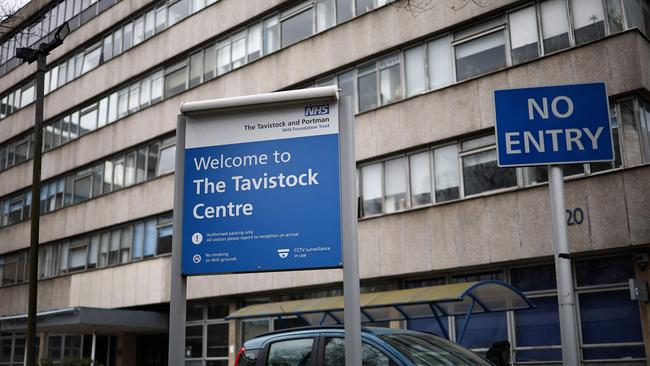Gender-questioning kids hurt by medical authorities’ silence

If it were, they routinely would measure patient health and publicly report the benefits and harms of their treatments. Instead, such services and their enablers among medical authorities continue to do everything they can to avoid the scrutiny that led to bans on puberty blockers for gender dysphoria in England, Sweden and Finland.
This month the Cass review of gender identity services in England established a gold standard for the oversight necessary to ensure gender services are not harming gender-questioning kids and their families. The bare minimum is that services do not use life-altering treatments on children without evidence of benefit.
Without the compulsion of Freedom of Information requests, Australian services have refused to release data about what they have been doing to patients. They have not provided any systematic information about harms suffered by their patients at all.
Almost nothing is known about the number of gender service patients who de-transition to traditional gender and the permanent damage done by their treatment. Those willing to speak in public about their experiences have been critical of gender-affirming services and describe a sense of abandonment. More concerning, Australian medical authorities have shown no desire to heed the Cass review’s warnings but seek only excuses to dismiss its conclusions.
Advocates of gender-affirming care in Australia appear to be telling two big lies. The first is that the services here are so different from those in England that the Cass review doesn’t apply. The second is that a gender-diverse identity does not involve mental illness. These arguments are plainly ridiculous.
A finding of the review is the close resemblance of all known gender-affirming care models, including in Australia. They are all modelled on the same framework developed in The Netherlands, and trace back to the same guidelines endorsed by the Endocrine Society in 2009 and the World Professional Association for Transgender Health in 2012.
The Cass review specifically evaluated the quality of the Australian Professional Association for Trans Health endorsed guidelines, concluding they had among the lowest quality of all international guidelines and indicating they were unacceptable because they did not follow rules that guard patient safety.
The second lie told by some gender-affirming advocates is that mental illness plays no part in development of non-traditional gender identities. This originally was told in a statement by the WPATH board of directors in 2010 and has never been confirmed by scientific experiments or justified in terms of any theory of normal and abnormal human development.
The Cass review documented how this type of claim about gender identity and gender-affirming care can be made to seem true by circular referencing. The technique is implemented by clinicians and researchers who refer to each other’s misleading claims as if they are true. After a few years of mutually reinforcing references, a small but organised group can establish false statements as accepted truths and prevent outsiders from proving they are false or misleading.
The lie that mental illness plays no part in development of gender diversity has been so effectively promoted by circular referencing that all efforts to scientifically investigate it have been prevented.
The psychiatric profession has a responsibility to patients to ensure this lie is exposed by careful research that reveals the role of healthy and unhealthy development in the emergence of gender diverse identities. It is certain that severe mental illness is the direct and only identified cause of some cases of gender diversity.It is likely mental illness plays some part in a large proportion of cases of gender diversity. And given the current state of knowledge, it is possible mental illness is a direct cause of all cases of gender diversity. The effort by medical authorities to deny the role of mental illness in development of gender diversity endangers the health of gender questioning children but also reveals a dangerous flaw in the medical profession’s self-regulation.
Cass described how gender-affirming care leads to diagnostic overshadowing, in which gender service clinicians are so focused on gender that they fail to adequately treat mental illness.
It recently has been confirmed that increased risk of suicide in patients with gender dysphoria is associated with mental illness, not dysphoria. It is reasonable to suppose that by preventing treatment of mental illness, gender-affirming care increases the risk of suicide.
Now that the gender-affirming model is entrenched in our health systems and we have compelling international warnings about the harms being caused, Australian medical authorities are silent or seek to avoid the scrutiny that revealed the harms done elsewhere. The exact causes of this abandonment can be revealed only by a public inquiry at the federal level.
In addition to gender services, it should examine the processes by which authorities such as the Royal Australasian College of Physicians and the Royal Australian and New Zealand College of Psychiatrists made their decisions to support the gender-affirming model of care despite its obvious limitations. As a psychiatrist I am aware of numerous colleagues who have been unable to extract a transparent account of this from our own college. For my part, I requested the RANZCP make a public statement confirming the results of the Cass review and committing to the reform of gender-affirming care to avoid culpability in the unfolding tragedy in Australia.
I was advised the college had no intention of making such a statement or undertaking such a commitment. In my opinion, this is a failure by medical authorities that indicates the decision to engage in reform may need to be taken out of their hands, both with respect to gender medicine and to the limits of self-regulation.
Andrew Amos is chair of the Queensland section of rural psychiatry at the RANZCP. He does not speak on behalf of the college.







Judging by their guidelines and practices, the primary goal of Australian public gender services is not to improve the health of gender diverse children.